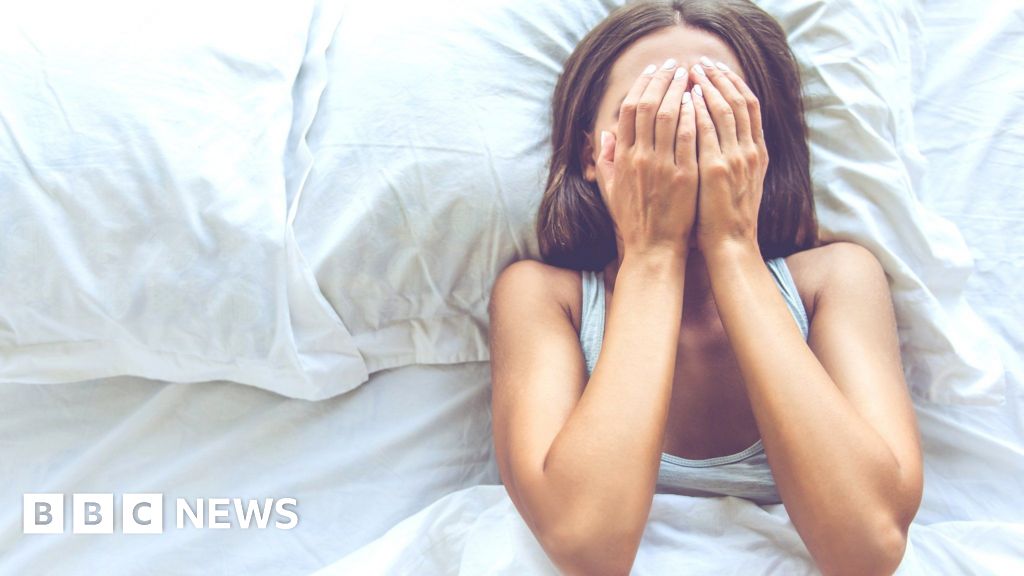It can be hard to get a good night's sleep when the weather is hot.
Here are some simple tips which could help.
Hot weather can make us feel a bit lethargic during the day. That is because we are using more energy to regulate our internal temperature.
But if your sleep is disturbed at night, try to avoid napping during the day. When it is hot, sleepiness can be precious - save it for bedtime.
Hot weather can encourage you to change your habits. Don't. That can disrupt sleep.
Try to keep to your usual bedtime and routines. Do the things you normally do before bed.
Take steps to make sure your bedroom is as cool as it can be at night.
During the day, draw the curtains or blinds to keep out the sun. Make sure you close the windows on the sunny side of your home, to keep out hot air.
Open all the windows before you go to bed, to get a through breeze.
Reduce your bedding but keep covers handy. Thin cotton sheets will absorb sweat.
However hot it is in your bedroom, your body temperature will fall during the night. That is why we sometimes wake up feeling cold.
Using even a small fan can be sensible in hot weather, especially when it is humid.
It encourages the evaporation of sweat and makes it easier for your body to regulate your internal temperature.
If you do not have a fan, try filling your hot water bottle with ice cold liquid instead.
Alternatively, cool socks in the fridge and put those on. Cooling your feet lowers the overall temperature of your skin and body.
Drink enough water throughout the day but avoid drinking very large amounts before bed.
You probably do not want to wake up thirsty - but you do not want to take an additional trip to the bathroom in the early hours either.
Be careful about soft drinks. Many contain large amounts of caffeine, which stimulates the central nervous system and makes us feel more awake.
Avoid drinking too much alcohol as well. Many people drink more when the weather is hot.
Alcohol might help us fall asleep but it promotes early morning waking and a poorer quality of sleep overall.
If you are struggling to sleep, get up and do something calming. Try reading, writing, or even folding your washing.
Just make sure you do not play on your phone or a video game - the blue light wakes us up and the activity is stimulating.
Children are often quite robust sleepers - but they can be very sensitive to changes in family "mood" and routine.
Make sure usual bedtimes and bath times do not go out of the window just because it is warm.
As part of the bedtime routine, lukewarm baths are recommended bythe NHS UK website. Make sure they are not too cold, as that will boost circulation (your body's way of keeping warm).
A baby cannot let you know if they are too hot or too cold, so it is important to monitor their temperature. They generally sleep best when the room temperature is kept between 16C and 20C.
You could install a thermometer where the baby is sleeping.
Most of us need about seven to eight hours of good-quality sleep, external each night to function properly.
But remember that most people can function well after a night or two of disturbed sleep.
Although you might yawn a little more frequently than usual, you will probably be fine.
These tips were based on suggestions by Prof Kevin Morgan, former director of the Clinical Sleep Research Unit at Loughborough University, and Lisa Artis, of the Sleep Council. This article was first published in July 2019.
Thames Water's temporary hosepipe ban covers Gloucestershire, Oxfordshire, Berkshire and Wiltshire.
The temporary hosepipe ban, enforced due to prolonged dry weather, began at 09:00 BST.
Orchards are being planted across London as a way to cool the city by providing shades during heatwaves.
Wessex Water says there are a number of reasons why it looks unlikely a hosepipe ban will be needed.
The weather alert service warns the public when high or low temperatures could damage their health.
Copyright 2025 BBC. All rights reserved.TheBBCisnot responsible for the content of external sites.Read about our approach to external linking.



 Education
Education 22 Jul, 2025
22 Jul, 2025 Scarlett Nguyen
Scarlett Nguyen